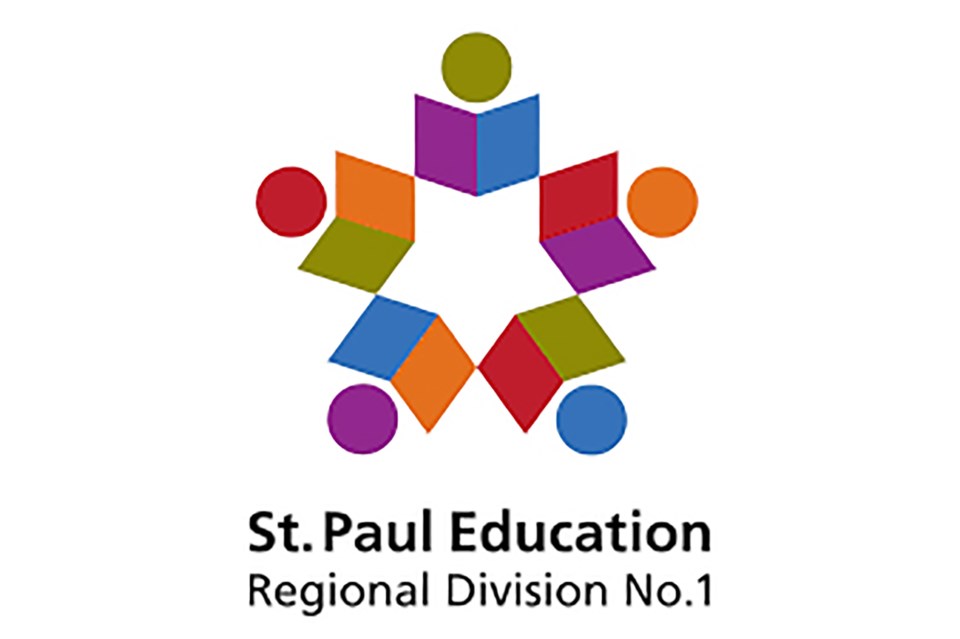ST. PAUL – The St. Paul Education Regional Division is in the process of establishing dual credit support for high school students in partnership with post-secondary institutions throughout the province.
Keith Gamblin, assistant superintendent, said the school division has established opportunities for students to acquire post-secondary credits for free with institutions like Portage College, Lakeland College, and Olds College.
“Dual-credit essentially is an opportunity for kids to take elective course, get high school credits, but also get credits at a post-secondary level,” said Gamblin, during the Oct. 12 board meeting, explaining dual credit courses also allow students opportunities to explore their interests and what they want to do in the future.
He added that another benefit students will potentially receive is reducing their course load when they attend a post-secondary institution, which is also “one less class they have to pay for.”
According to an Oct. 6 provincial news release, the Government of Alberta announced $4 million funding to school authorities in the province to create new dual credit opportunities for the 2022-23 school year. The funding can also go toward enhancing already existing dual credit courses.
School authorities can apply for one dual credit start-up grant up to $50,000, “and/or one dual credit enhancement grant of $100,000,” according to the provincial government.
Minister of Education Adriana LaGrange stated in the news release that dual credit programs can help students make “meaningful transitions to post-secondary education, trade designations, or the workplace.”
St. Paul Education received $50,000 funding for a start-up grant in partnership with Portage College, according to Gamblin. He explained the grant will offer high school students additional opportunities to receive credits in technology-related course like “robotics.”
PAT changes
Following a security breach that resulted to the answers of provincial achievement tests (PATs) being posted on social media in June of this year, the provincial government required all students to write the provincial achievement tests at the same time moving forward.
According to information from the Government of Alberta, exceptions are made for schools or school authorities where the school year ends before PATs are traditionally written.
Exceptions are also made if there are “extenuating and unforeseen circumstances” that prevent tests being administered, like wildfire or closure of school due to mechanical failure.
While the changes do reduce flexibility, St. Paul Education is not anticipating any significant issues to arise, heard the board of trustees.
Science fair being explored
St. Paul and District STEM and STEAM (SPDSS), a technology-based community organization aiming to connect seniors and youth, met with St. Paul Education to discuss potential partnership.
SPDSS proposed the idea of working with St. Paul Education to have a science fair open to students in Grades 5 to 12.
Other potential ideas being explored by the SPDSS include an after-school program that involves teaching tech-literacy to seniors, and coding classes for students that will run out of Portage College.
Trustee Darcy Younghans asked if SPDSS proposed having St. Paul Education students as facilitators to help the elderly, which aligns with organization’s visions. Gamblin said, “not necessarily, but it’s an option.”
According to Gamblin, the idea can be an opportunity for students to receive credits, mentorship, and work experience in relation to technology.
“I like that idea,” said Younghans.
Inclusive education and early intervention
St. Paul Education’s Inclusive Education Supports and Services have been out working in schools to provide support including the Reading Ready program for students Grades 2, 3, and 4. Meanwhile, Grade 1 students will be screened in January.
According to Sha Tichkowsky, associate superintendent of student supports, 664 students have been screened, with students who have been “deemed most at risk” receiving reading intervention programming.
Tichkowsky also said that in terms of early intervention, 19 children (ages 2.8 to 4.8) are receiving support in Program Unit Funding (PUF) programming.
Nine children (ages 4.8 to 6) are currently being supported in Kindergarten Specialized Learning Support. Tichkowsky also added that a kindergarten screening process is underway to help children with moderate language disorders.
Enrolment update
During the Wednesday meeting, Superintendent Peter Barron reported the enrolment across the division is 93 students over the expected estimation. St. Paul Education has a total of 3,833 students enrolled in kindergarten to Grade 12 this year, as opposed to 3,734 last year.
Barron said the numbers “are very encouraging.”
Post-Secondary Night
On Oct. 25, students will have the chance to meet with representatives from post-secondary institutions across the province at the Regional High School gymnasium.
Opportunities at the event include information on dual-credit programming, as well as potential opportunities for scholarships and career counseling.
In-town busing
According to information from St. Paul Education, changes with in-town busing will allow 14 students who have been on a waiting list to access busing.
After the Oct. 12 St. Paul Education Board Meeting, CSBO Secretary-Treasurer Jean Champagne explained that “we have made adjustments to rural routes to pick up (students) in town.”
He added that a dual-run system will also be implemented on select stops to address the remaining space issues that exist.



